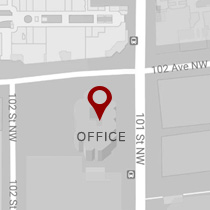Power Of Attorney And Personal Directives
Enduring Power of Attorney
If you are no longer able to make decisions for yourself due to illness or injury, your children, your spouse or your family members will want to care for you. They may need access to your assets to do that. Unless you have an enduring power of attorney, your family members may need to go to Court to access your assets to use for your benefit or to pay your expenses. An application under the Dependent Adults Act is stressful, costly and takes a very long time when there are urgent matters which you need taken care of.
An enduring power of attorney does not come into effect unless and until your doctor, and/or the person you appoint to make that determination, certifies that you no longer have the capacity to make decisions for yourself. It must be completed before you lose capacity and may lapse again if you regain capacity.
An attorney’s (not usually really a lawyer! – in this context, it means your agent) principal responsibility is to act in the best interests of the person for whom they have been entrusted. This means making decisions in the best interests of the person under their care. This means not allowing their personal interests to conflict with those of the person who is under their care. They are answerable to the Court for their actions, however, they are not answerable to curious friends and family members generally. Your affairs remain your personal, confidential business and the attorney keeps that confidence and reports to the Court if family members become concerned about their actions.
Personal Directive
A personal directive is the document hospitals and extended care homes often ask if you have. Some people used to refer to it as a living will. It allows you to appoint someone you trust as your agent to make decisions about your personal care, health care and living arrangements when you are unable to make those decisions for yourself. Once again, having a personal directive will relieve your family of the need to make application to the Court to appoint one of them as your Guardian.
A personal directive comes into effect as soon as you become mentally incapacitated. To determine your loss of capacity, your agent needs to consult with a doctor or psychologist who has assessed you.
Legally, you can appoint more than one agent, however, that often causes difficulties if they do not quickly agree on what is to be done. You should chose an agent who is familiar with your beliefs and whom you have had discussions regarding your wishes for where you would like to live, what activities you want to take part in, what types of medical treatments you wish and whether or not you wish extraordinary measures to be taken to keep you alive in certain circumstances. Your agent is to make decisions s/he believes you would have made yourself in the circumstances.
Contact Us
Take the first step by calling our Edmonton office at 780-429-1010 or email us today.
DOWNTOWN OFFICE
Suite 1200 Phipps McKinnon Bld, 10020 – 101A Avenue
Edmonton,
AB T5J 3G2
780-429-1010
780-429-0101
lawyers@raponirideout.com
Edmonton Law Office Map
SOUTHSIDE OFFICE
4107 – 99 Street
Edmonton,
AB
T6E 3N4
780-486-8686
780-490-4363
Map & Directions

